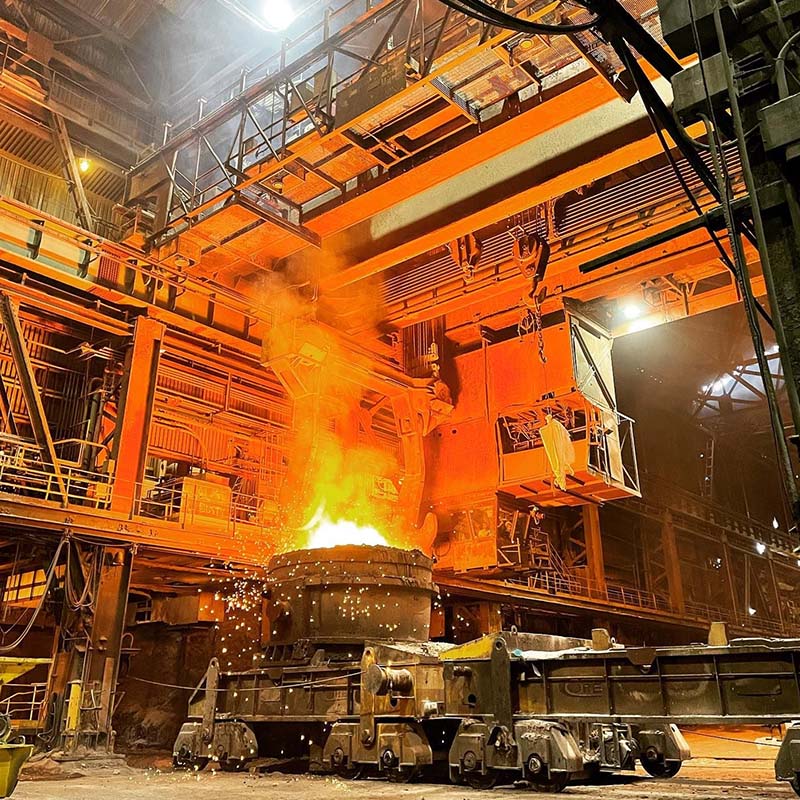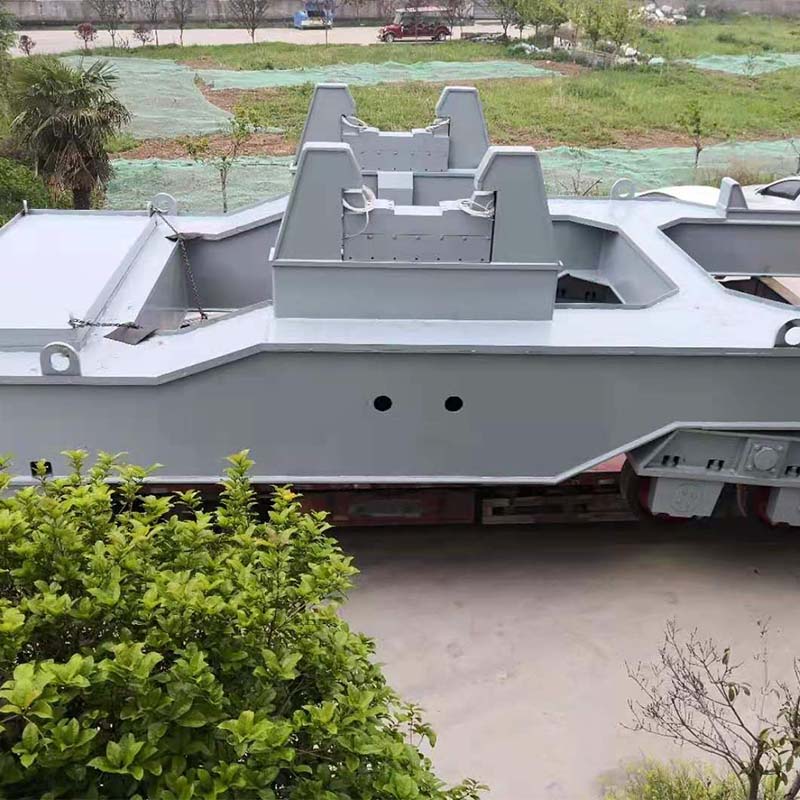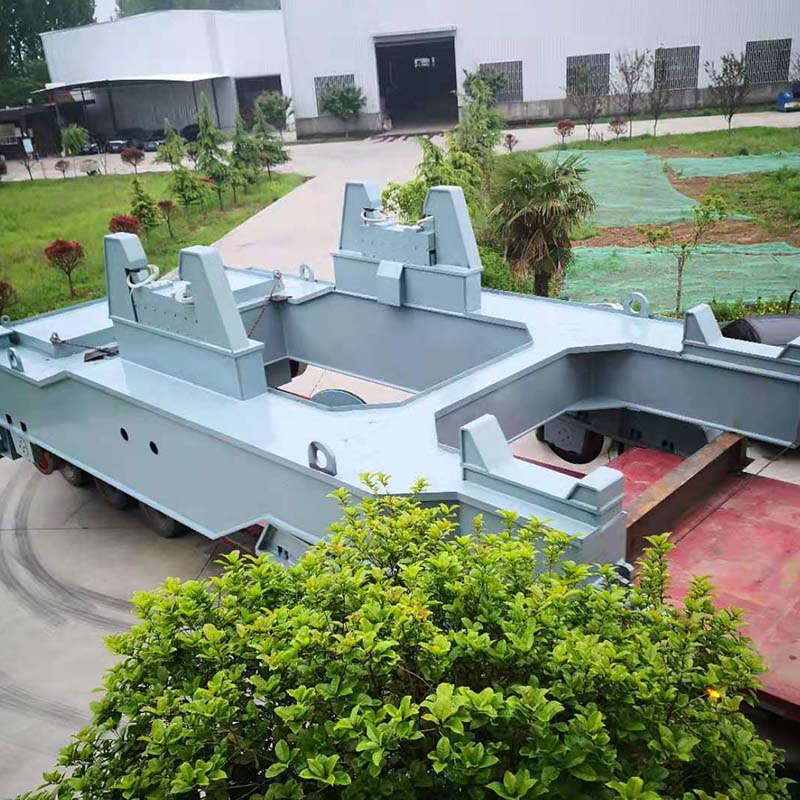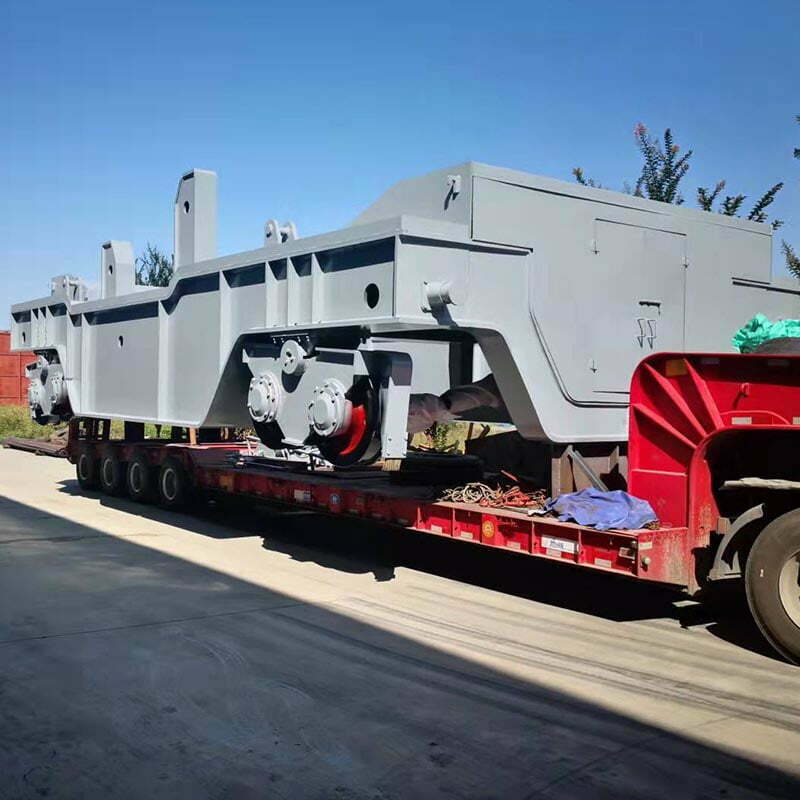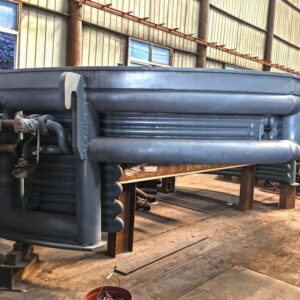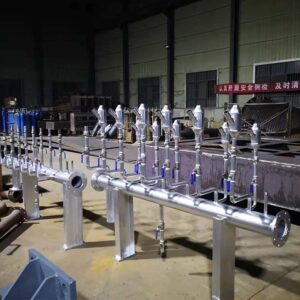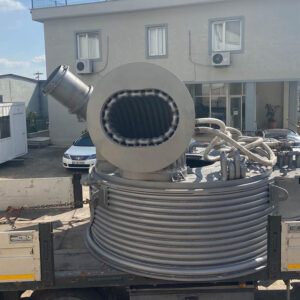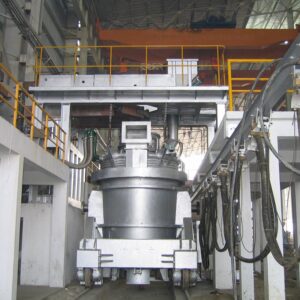Description
Ladle Transfer Car
A ladle transfer car is a tool used to transport ladle. In the past, when the capacity of an electric arc furnace was small, the ladle of the electric arc furnace was often lifted by crown block. At present, not only the electric arc furnace is developing toward a large scale, but also due to the universal application of refining technology, the use of crown block ladle tapping has been basically invisible in steel-making enterprises. Instead, the ladle transfer car is widely used.
Equipment Composition
Ladle transfer car is a tool for transporting ladle. During the tapping of the electric arc furnace, the ladle car will transport the ladle to the tapping position of electric arc furnace. After tapping, the ladle will also be transported to a position far away from the electric arc furnace. The ladle filled with molten steel not only bakes the tapping car, but also may cause damage to the ladle car when the ladle leaks or splashes molten steel. Therefore, it is necessary to ensure that the ladle car has sufficient strength and stiffness, and fire bricks are built on the upper plane of the ladle car to protect the car’s body and driving device.
Whether it is a sliding wire tapping car or a drum ladle car, the mechanism is basically composed of car body, ladle support, wheel, electrode reducer, transmission shaft and coupling, cable and argon conveying device, weighing device and traction device.
The cable connecting the motor of the ladle car and the argon conveying hose have two structural forms: sliding wire type and drum type. The sliding line structure is equipped with a roller device on the sliding line, which can automatically roll during the forward and backward process of the ladle car, driving the cable and argon conveying hose to move together with the ladle car; The drum type structure is provided with a drum device on the ladle car. During the forward and backward process of the ladle car, the drum will automatically wind up the cable and argon hose. At present, both structures have applications.
Parameters
| Ladle capacity |
20
|
25
|
35
|
45
|
60
|
70
|
135
|
140
|
|
Gauge(s)(mm)
|
1600
|
1800
|
2670
|
2800
|
3400
|
|||
|
Running speed(m/min)
|
28
|
28.57
|
29.5
|
30
|
||||
|
Supply voltage(V)
|
380
|
|||||||
|
Motor power(KW)
|
7.5
|
11
|
22
|
16×2
|
40
|
16×2
|
30
|
16×2
|
|
Overall dimension(L×W×H)(mm)
|
5900×2300
×2900
|
5950×2480
×2950
|
7000×2800
×3166
|
7500×3360
×3460
|
8000×3909
×3850
|
8765×3983
×4050
|
10120×5840
×4800
|
7700×5840
×4900
|
Driving mode of the ladle transfer car
There are two main driving modes of ladle car, namely mechanical drive and hydraulic drive:
(1) Mechanical transmission is characterized by simple structure and high reliability, but mechanical transmission has little inertia and is not easy to locate. In addition, for heavy-duty and low-speed large ladle cars, the volume of the reducer is relatively large. At present, frequency conversion speed regulation is mostly used to realize the low-speed walking of ladle car.
(2) Hydraulic transmission is characterized by short starting and braking transition time, convenient speed regulation, stable transmission, small inertia and accurate parking. However, the hydraulic transmission should be equipped with its own oil source device on the tapping car, and the structure is relatively complex. And the hydraulic motor with high torque and low speed is also more expensive, so it is rarely used.
Customized Ladle Transfer Car
We can design and manufacture the ladle transfer car according to the client’s required capacity, working hours, power supply, raw materials, and other related parameters. It can also be matched for users who already have ladle refining furnace.
Custom Range
Ladle capacity: 20T-140T
Gauge:1600-3400MM
Running speed: 28-30M/Min
Supply voltage: 380V
Service
We can provide foundation layout and layout drawings
We will send engineers to your factory to install and debug machines and provide reliable after-sales service.
Competitive price and excellent quality
Our machines are easy to operate and maintain
Less investment
Stable performance
Products can be customized according to different need
Production capacity can be adjusted according to customer requirements
Low energy consumption

